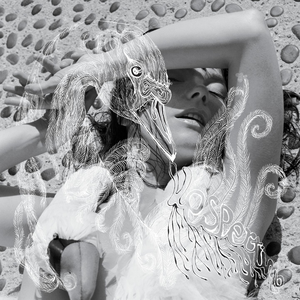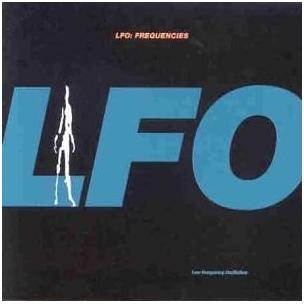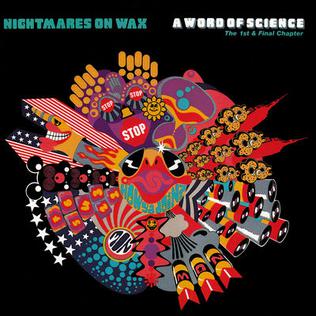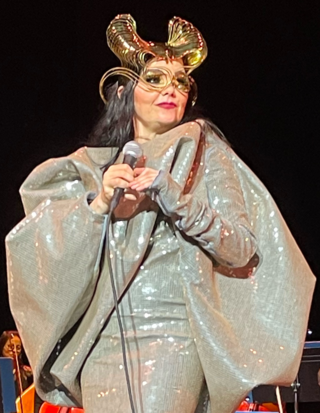
Warp Records is a British independent record label founded in Sheffield in 1989 by record store employees Steve Beckett and Rob Mitchell and record producer Robert Gordon. It is currently based in London.

Debut is the international debut studio album by Icelandic recording artist Björk, released in July 1993 by One Little Indian and Elektra Entertainment. It was produced by Björk and Nellee Hooper. It was Björk's first recording following the dissolution of her previous band, the Sugarcubes. The album departed from the rock style of her previous work and drew from an eclectic variety of styles, including electronic pop, house music, jazz and trip hop.

LFO was a British electronic music act formed in 1988 consisting of Mark Bell and Gez Varley. They released their acclaimed debut LP Frequencies in 1991 on Sheffield label Warp. After Varley left the group in 1996, Bell continued solo to release Advance (1996) and Sheath (2003). Bell died in October 2014, effectively ending the project.

Life's Too Good is the debut studio album by Icelandic alternative rock group the Sugarcubes. It was released April 25, 1988 by One Little Indian in the UK and Europe and in May 1988 by Elektra Records in the US. The album was an unexpected success and brought international attention for the band, especially to lead singer Björk, who would launch a successful solo career in 1993.

Vespertine is the fourth studio album by Icelandic recording artist Björk. It was first released on 18 August 2001 in Japan by One Little Indian Records and in the United States by Elektra Entertainment. Björk aspired to create an album with minimal and intricate electronic music to evoke an intimate and domestic feeling, in contrast with the louder styles of her previous studio album Homogenic (1997). She enlisted producers such as Opiate, Console and the duo Matmos, and has also worked with harpist Zeena Parkins. Production on the album began whilst filming her role in Dancer in the Dark.

Homogenic is the third studio album by Icelandic recording artist Björk. It was released on 22 September 1997 by One Little Indian Records. Produced by Björk, Mark Bell, Guy Sigsworth, Howie B, and Markus Dravs, the album marked a stylistic change, focusing on similar-sounding music combining electronic beats and string instruments with songs in tribute to her native country Iceland.

Post is the second studio album by Icelandic singer Björk. It was released on 7 June 1995 by One Little Indian Records. Continuing the style developed on her first album Debut (1993), Björk conceived of Post as a bolder and more extroverted set of songs than its predecessor, featuring an eclectic mixture of electronic and dance styles such as techno, trip hop, IDM, and house, but also ambient, jazz, industrial, and experimental music. Björk produced Post herself with co-producers including Nellee Hooper, 808 State's Graham Massey, and former Massive Attack member Tricky. She wrote most of the songs after moving to London and intended the album to reflect her new life in the city.

Mark Bell was a British DJ, record producer, and member of the pioneering techno group LFO. He recorded on Warp Records, and also collaborated with artists such as Björk and Depeche Mode.

"Isobel" is a song by Icelandic singer-songwriter Björk for her second studio album, Post (1995). Written by Sjón based on a story by Björk, the lyrics of "Isobel" tell the story of the title character, who is magically born in a forest and sends a message of instinct amongst the logical thinking of the people of the city. The story of Isobel has been explored in "Human Behaviour" and "Bachelorette", forming a trilogy. The track was released as the second single for the album in August 1995 by One Little Indian. Featuring additional songwriting by Nellee Hooper and Marius de Vries, string arrangements by Eumir Deodato and production by Hooper and Björk, "Isobel" combines a lush orchestral sound with electronic breakbeats.

"Possibly Maybe" is a song by Björk, released as the fifth single from her second album Post (1995). It is a song with deep electronic tones and soft beats that reflects on potential love. Released in the United Kingdom as the fifth single from the album, it reached number 13 on the UK Singles Chart in November 1996.

"All Is Full of Love" is a song by Icelandic musician Björk from her third studio album, Homogenic (1997). The lyrics were inspired by love in spring and Ragnarök of Norse mythology. Björk's original version is a trip hop ballad with soul influences, harp, strings, and electronic beats; the version on Homogenic is a minimalist ambient remix by Howie B, emphasising Björk's vocals. A remix by the German IDM duo Funkstörung was released as a single in 1998.
The Sabres of Paradise were a British electronic music group from London. They consisted of Andrew Weatherall, Jagz Kooner, and Gary Burns.
Gerrard Varley is a British electronic musician and DJ, who was member of LFO during the 1990s and later released his solo works under the moniker G-Man.

Frequencies is the debut studio album by British electronic music duo LFO, released on 22 July 1991 by Warp. It peaked at No. 42 on the UK Albums Chart and was released to universal acclaim.

Sheath is the third and final studio album by British IDM project LFO. It was released by Warp on 22 September 2003. It peaked at number 27 on the UK Independent Albums Chart.
"Pluto" is a song by Icelandic musician Björk. The song was written and produced by Björk and British producer Mark Bell for Björk's third studio album, Homogenic (1997).

A Word of Science is the debut studio album by British electronic producers Nightmares on Wax. Released by Warp Records in September 1991, it is the act's only album as a group before it became a solo vehicle for George Evelyn. Evelyn nonetheless recorded and produced the album alone, incorporating samples and elements from demo tapes he made in the late 1980s. Although Nightmares on Wax debuted with two well-received techno singles in 1989-1990, A Word of Science is eclectic and largely moves the act towards a more mellow style influenced by funk, soul and hip hop, while still incorporating techno, drum and bass, and house styles.

Björk Guðmundsdóttir is an Icelandic singer, songwriter, composer, record producer, and actress. Noted for her distinct voice, three-octave vocal range, and sometimes eccentric public persona, she has developed an eclectic musical style over a career spanning four decades, drawing on electronica, pop, dance, trip hop, jazz, and avant-garde music. Regarded as the "Queen of Experimental Pop," she is one of the most influential pioneers in electronic and experimental music.
"All Neon Like" is a song by Icelandic musician Björk. The song was written by Björk and produced by the singer and British producer Mark Bell for Björk's album Homogenic (1997).














